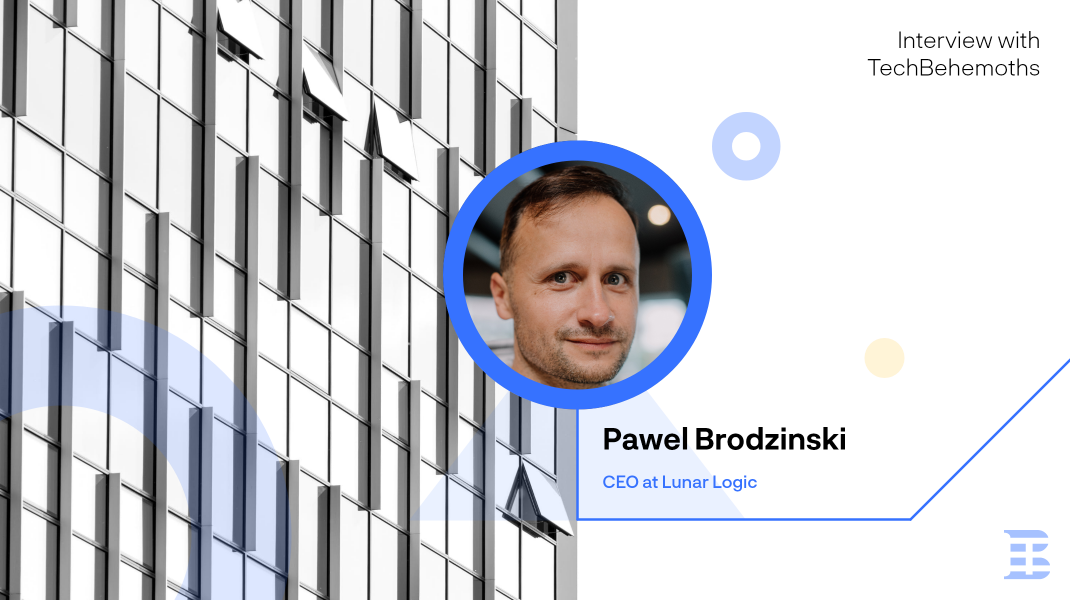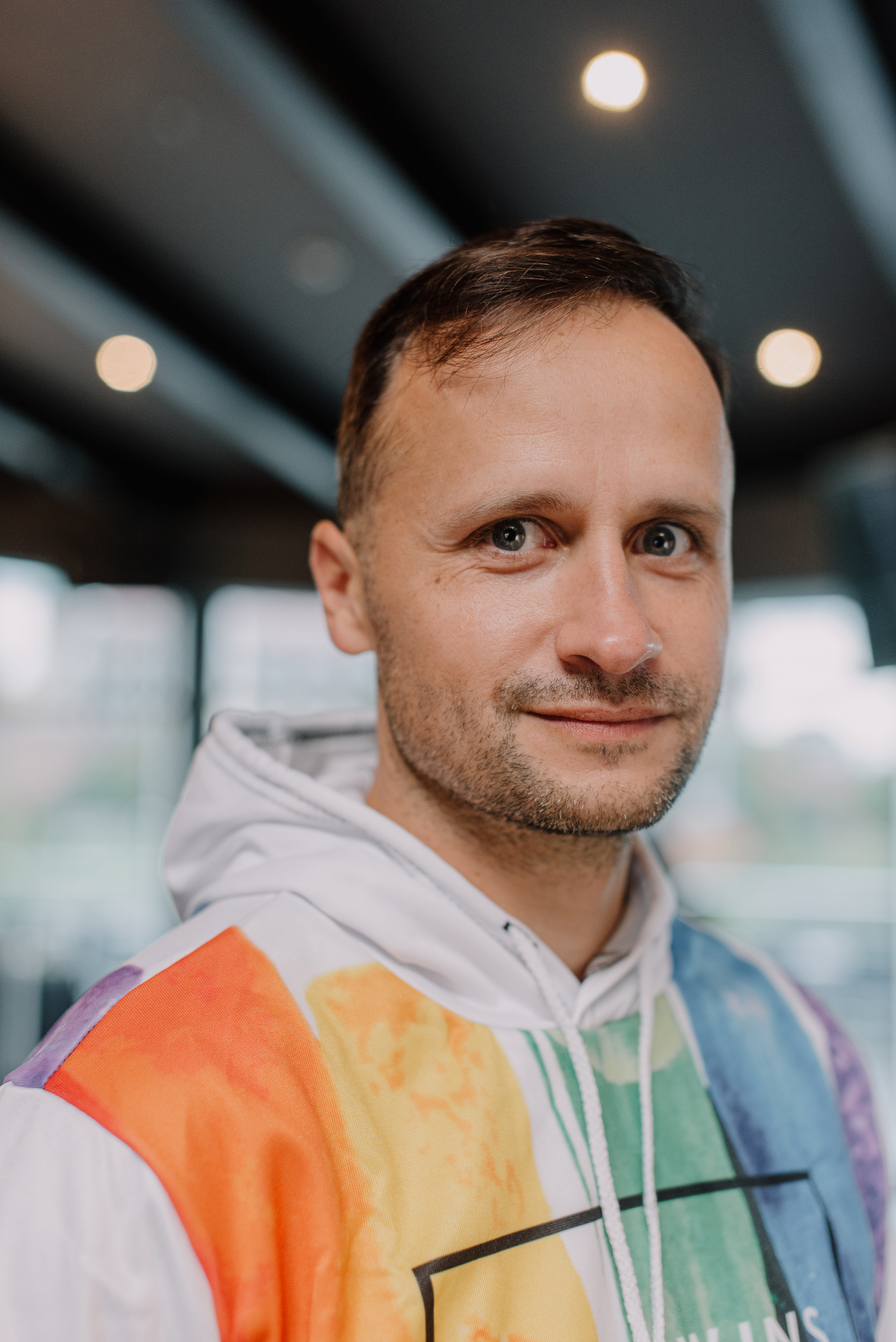Interview with Pawel Brodzinski - CEO at Lunar Logic

Pawel Brodzinski is the leader of Lunar Logic team - a top digital agency located in Krakow, Poland. As a professional, Pawel has a very broad experience in both technical and management positions, and is considered one of the most skillful members of the team.
In today's interview, we invite you to discover Pawel and his twisted and interesting story both as a professional but also as a personality.
Hi Pawel, please tell us a little about yourself. Your background and how did you come to this point?
I sometimes joke that, save UX and design, I've done everything that the software industry has to offer. Software development, testing, architecture, customer support, project management, product ownership, even sales & marketing--at one point or another, I've been doing that both in the line and management roles. I guess the inevitable result was to run the whole shop.
Another perspective was offered by one of my former bosses. He said that "Pawel was a mediocre software developer, so we promoted him to management."
Jokes aside, both of these anecdotes describe my path pretty well. On the one hand, I learned to like leadership roles, and hopefully, I'm not that bad at it. On the other hand, the broad experience helped me understand the complexity of building and running an effective team of people who make software products and appreciate everyone's effort and importance.

When and how did you start your business? Is there an interesting story here?
The interesting thing is, I haven't started Lunar Logic. The company was founded in 2004 as a branch of a US-based parent company to outsource software development. Long story short, a year later, the parent company was out of business, and Paul Klipp, who led the organization at that time, was told to let everyone go and close down the business. Except he refused to do so and started looking for projects independently. And that's what we've been doing for 16 years now--helping our clients to build their software products.
What am I doing at the company then? Well, I knew Paul from the Agile & Lean community. It was late spring 2012 when on one warm evening, we were sipping beers after a conference. At some point, Paul mentioned that he was tired of running the company and he'd like to step down if only he could find someone he could trust to take over. I shouted something like "Take me! Take me!" I thought of it as a joke, yet here I am, leading the pack ever since.
What do you think you’d be doing right now if your business didn’t exist?
Teaching and mentoring, probably. At Lunar Logic, we completely reinvented our management model. We follow the approach I call radical self-organization. There are no managers at all. The only person who could think of themselves as one would be me, but I avoid the notion as much as possible. In fact, the only reason we even have a CEO is that it's a legal requirement.
Everything at the company is transparent, including our rates, financials, everyone's salaries, etc. People have vast autonomy--they can decide pretty much about anything, including giving raises to their colleagues or themselves. This organizational culture worked miracles for us, and it is also in line with the trends in the theory of management. However, still few companies know of such progressive management methods, let alone try to adopt them. I already treat advocating such methods as my personal mission. If there was no Lunar, I'd probably make it my job too.

What’s your technique for staying productive throughout the day?
I'm not sure if I even try to be "productive" throughout the day. I mean, sometimes activities that seemingly are not productive yield the most value in the end. In such an uncommon organization as Lunar Logic is, I tend to define my role as someone who would take care of all the stuff that no one else takes care of. This can be anything from responding to people who apply for a job or updating our social media to negotiating rates or discussing changes in team lineups with the clients.
Anything that's taken off the plates of our engineers and allow them to be effective makes us as the company more successful. That's what counts. It doesn't matter whether I am productive in my isolated work.
How do you define "being successful"?
Professor Gary Hamel has this saying that we live in a world of accelerated change. Changes get faster and faster. Companies grow at an unprecedented pace, but at the same time, their lifespan is shorter than ever in history. In such a landscape, I believe that sustainability is a much better measure of success than growth, which has been the mantra of the business world for decades. The thing is, sustainability and growth are frequently at odds. So if you asked me what would be a criterion of our success at Lunar Logic, I'd say that if the company is around in 20 years from now, then yes, we will have been successful. And it wouldn't matter that much whether we are twice or ten times as big.
You can also use sustainability in a different context, namely, how sustainable is a relationship between an employee and an organization? Is the organization humane? Does the staff want to stay there in the long run? Without designing an organization that is fit for human beings, there will be no sustainability

What do you like to do when you're not working?
I love spending time with my close ones, but some time in solitude does me good too. Sailing is my passion, but I don't get to do this as much as I'd like to because of travel limitations. I always appreciate a good chat, preferably in a small group. If you can spice it up with a good beer or two, that's even better.
What are your recommendations for a business or developer novice?
Wherever you are, there's always valuable stuff to learn. The software industry is so vibrant, and there are so many opportunities. Thus, when we end up in a less-than-perfect role, the easiest decision is often to change a job. The job market being what it is, this option is always available, but I think, in general, we are too quick to jump ship. Some of my most valuable career experiences came from roles and jobs that I considered far less than perfect. I couldn't see it up-front, but I see how much they gave me with the comfort of hindsight.
There's typically more you can influence than you think.
And most definitely, self-development is on the list. Of course, this isn't a universal answer to any issue. If the job you have is plainly hurtful, by all means, look for a safe workplace. But if your main frustration is that the tech stack you work with is not ideal, or your project isn't all that interesting, or you expect to have an experienced teammate to help you with development, well, there may be some great opportunities in your blind spot.
Thanks Pawel for sharing your story in this interview. They are all interesting to read and easy to remember! Wish you and Lunar Logic good luck in your activity and hope to hear from all of you soon in other ways and formats!
Pawel and Lunar logic are one of the top digital agencies from Krakow, Poland. If you liked the interview and think that Pawel and Lunar Logic can help your business grow, look better and attract more customers, don't hesitate to contact them via TechBehemoths company profile